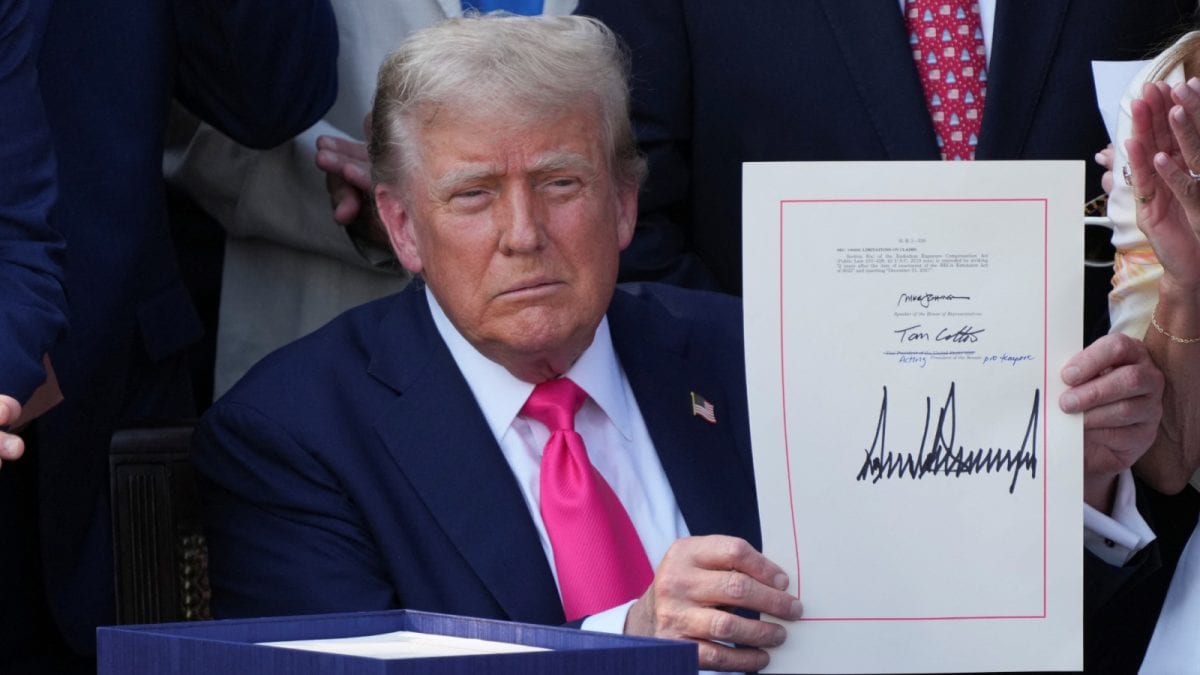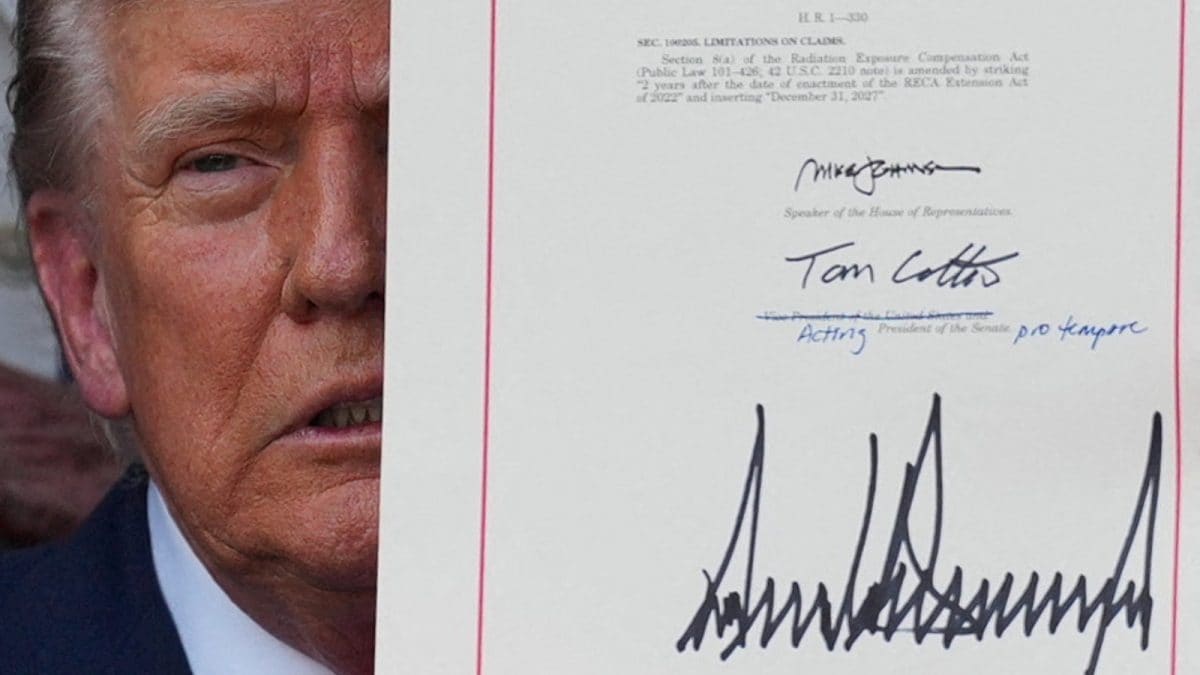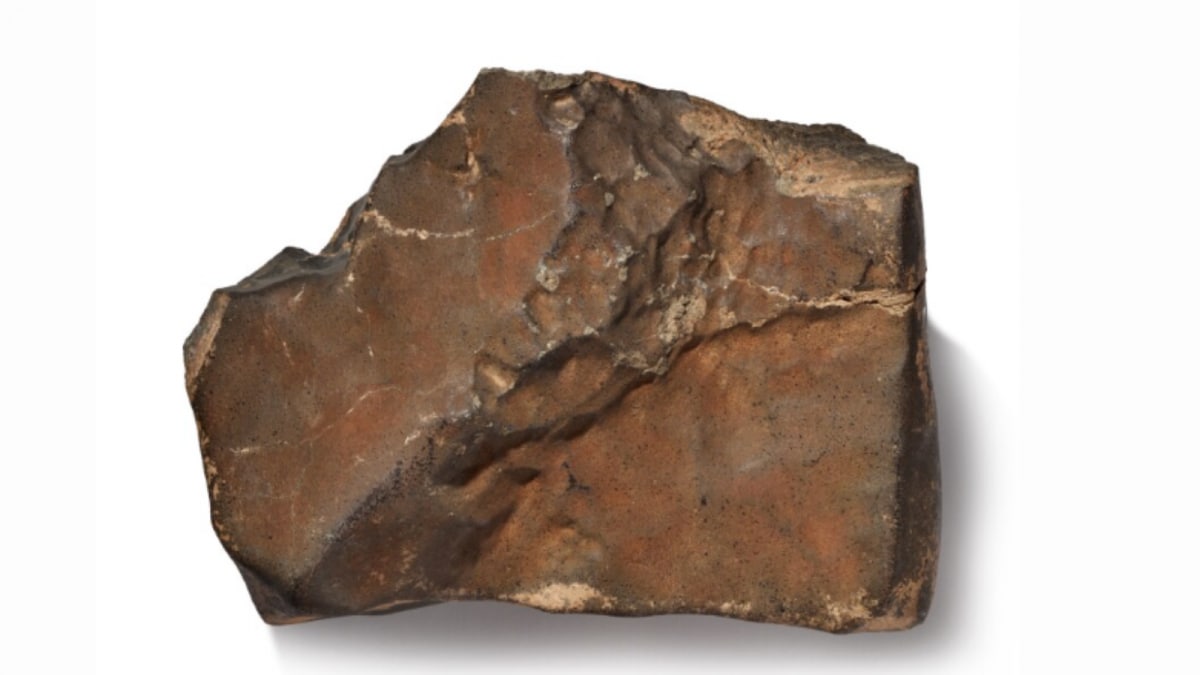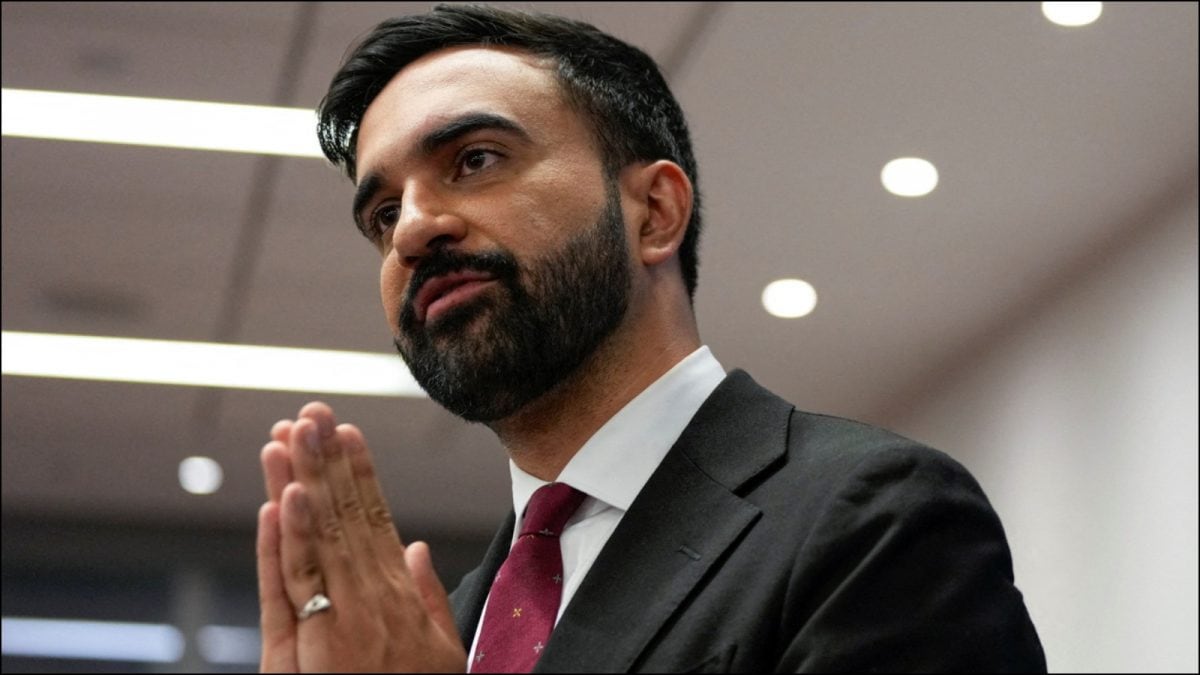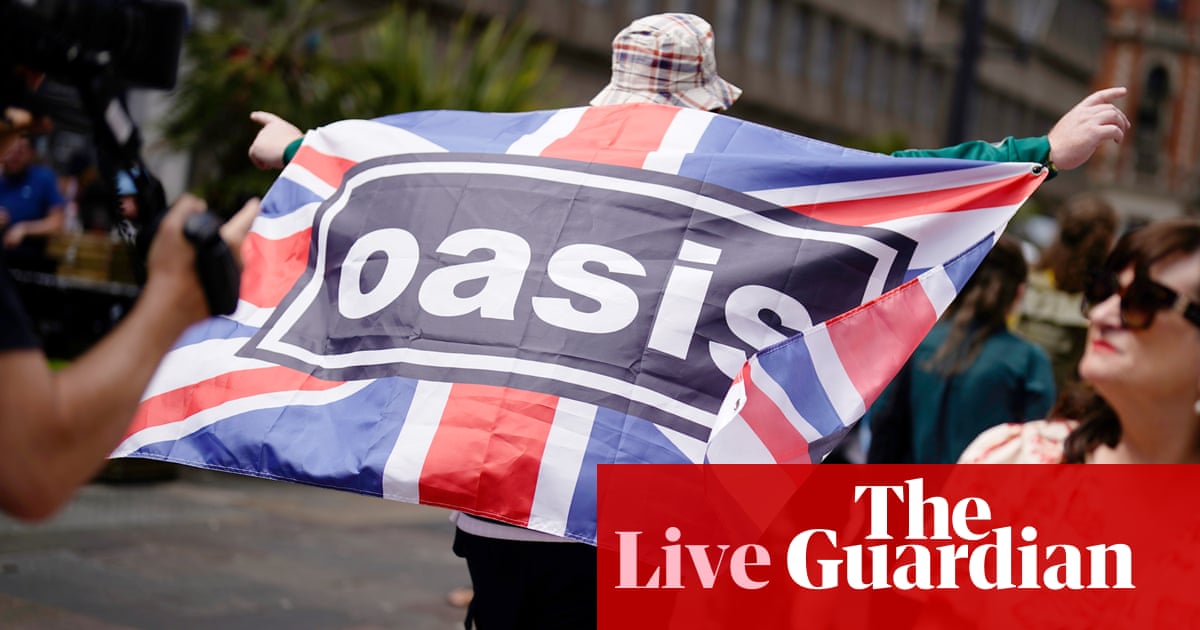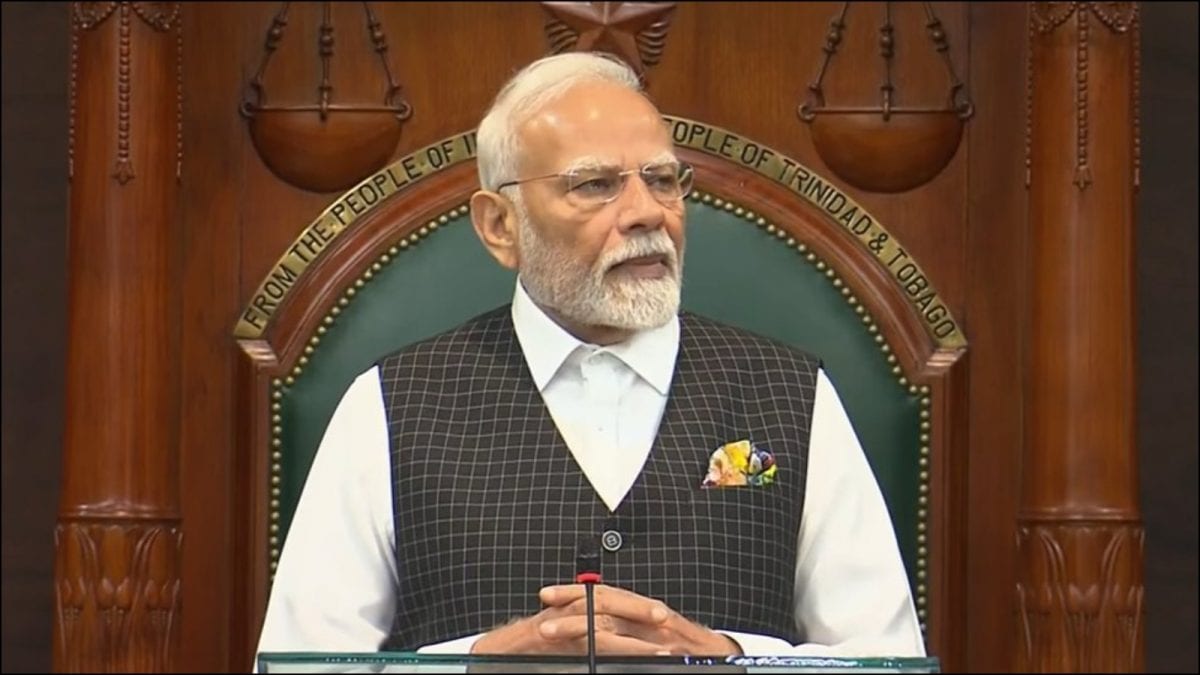Last Updated:May 16, 2025, 21:51 IST
This is the seventh time since May 10 that Trump has claimed that the US brokered the "ceasefire" between New Delhi and Islamabad.

US President Donald Trump. (File image)
US President Donald Trump on Friday yet again reiterated his mediation efforts between India and Pakistan, describing the ceasefire between New Delhi and Islamabad as a “big success" and said the level of anger between the two neighbouring countries “was not a good thing."
“We are very happy with what happened with, I hope it continues, and I think it will, but what happens with India and Pakistan. That was a big success. If you would have seen the level of anger between the two, that was not a good thing," the US President said during a gaggle with the press on Air Force One as he was returning to Washington from his three-nation Gulf trip as quoted by news agency PTI.
This is the seventh time since May 10 that Trump has claimed that the US brokered the “ceasefire" between New Delhi and Islamabad.
Earlier on Thursday, he had repeated his claim that he “helped settle" the soaring tensions between New Delhi and Islamabad.
While addressing a crowd of US military personnel at al-Udeid Air Base in Qatar, Trump had said, “I don’t wanna say I did but I sure as hell helped settle the problem between Pakistan and India last week, which was getting more and more hostile and all of a sudden you’ll start seeing missiles of a different type and we got it settled. I hope I don’t walk out of here and two days later find out that it is not settled, but I think it is settled."
Trump Took Credit For Ceasefire
Immediately after the ceasefire between India and Pakistan last week, Trump had claimed he mediated between the two nations. Posting on Truth Social, Trump had said, “After a long night of talks mediated by the United States, I am pleased to announce that India and Pakistan have agreed to a full and immediate ceasefire. Congratulations to both countries on using common sense and great intelligence. Thank you for your attention to this matter!"
He had also portrayed the ceasefire as a major diplomatic success, stating that he had prevented a potential nuclear war and even envisioned the leaders of India and Pakistan dining together in peace.
The US President had made similar claims after the ceasefire announcement. On Wednesday, Trump again said he had “brokered" a deal between India and Pakistan. “Just days ago, my administration successfully brokered a historic ceasefire to stop the escalating violence between India and Pakistan, and I used trade to a large extent to do it," he had said.
“I said, fellas, come on, let’s make a deal. Let’s do some trading. Let’s not trade nuclear missiles. Let’s trade the things that you make so beautifully," he added.
India Rejected Trump’s Claim
India carried out precision strikes under ’Operation Sindoor’ on terror infrastructure early on May 7 in response to the April 22 Pahalgam terror attack that killed 26 people.
Following the Indian action, Pakistan attempted to attack Indian military bases on May 8, 9 and 10. The Indian forces launched a fierce counter-attack on several Pakistani military installations.
However, the claims made by the US President were rejected by New Delhi. The Ministry of External Affairs clarified that the ceasefire was achieved directly through military-to-military channels between the Directors General of Military Operations of India and Pakistan, without any involvement of any third party, including the US.
India has firmly rejected any suggestion of third-party mediation on the Kashmir issue, stating that the only pending matter is for Pakistan to return territories currently under its illegal occupation.
Additionally, Prime Minister Narendra Modi in his address to the nation post Operation Sindoor had said, “India will only engage with Pakistan on two issues, terrorism and the return of Pakistan-Occupied Kashmir (PoK), ruling out any possibility of normal diplomatic dialogue.’
On Thursday, EAM Dr S Jaishankar said that India’s stance on Pakistan remains consistent — strictly bilateral engagement– a national consensus for years and there would be no shift in the stance.
Operation Sindoor
India launched “precision strikes" under Operation Sindoor on nine terror targets in Pakistan and PoK following the Pahalgam terror attack that killed 26 civilians. The strikes killed at least 10 family members of JeM chief Masood Azhar and four close aides.
The sites targeted were the Pakistani bases at Rafiqui (Shorkot, Jhang), Murid (Chakwal), Nur Khan (Chaklala, Rawalpindi) Rahim Yar Khan, Sukkur and Chunian (Kasur). In the strikes, the air bases in Skardu, Bholari, Jacobabad and Sargodha suffered extensive damage.
Within a tightly coordinated 24-minute window, India targeted 21 terror camps linked to Lashkar-e-Taiba (LeT) and Jaish-e-Mohammed (JeM) across nine locations, four in Pakistan and five in Pakistan Occupied Kashmir (PoK). The targets were not just aimed at avenging the Pahalgam attack, but also targeting terror sites where other such attacks were planned.
India-Pakistan Soaring Tensions
In one of the biggest attacks in Jammu and Kashmir, Lashkar-linked terrorists opened fire on a group of tourists in Pahalgam on Tuesday, April 22, killing at least 26 people, including foreign tourists, and injuring many others. The Resistance Front (TRF), a Lashkar offshoot, claimed responsibility for the attack, although it later backtracked after massive global outrage.
After the attack, the diplomatic ties between India and Pakistan were downgraded with New Delhi announcing several punitive measures, including suspension of Indus Water Treaty, cutting Islamabad Mission strength, closing its airspace for Pakistani airlines and expulsion of its military attaches. In response, Pakistan undertook tit-for-tat measures and suspended the Shimla Agreement.
(With inputs from agencies)
Location :Washington D.C., United States of America (USA)
First Published:News world Level Of Anger Between India, Pakistan Was Not A Good Thing: Donald Trump

 1 month ago
1 month ago
